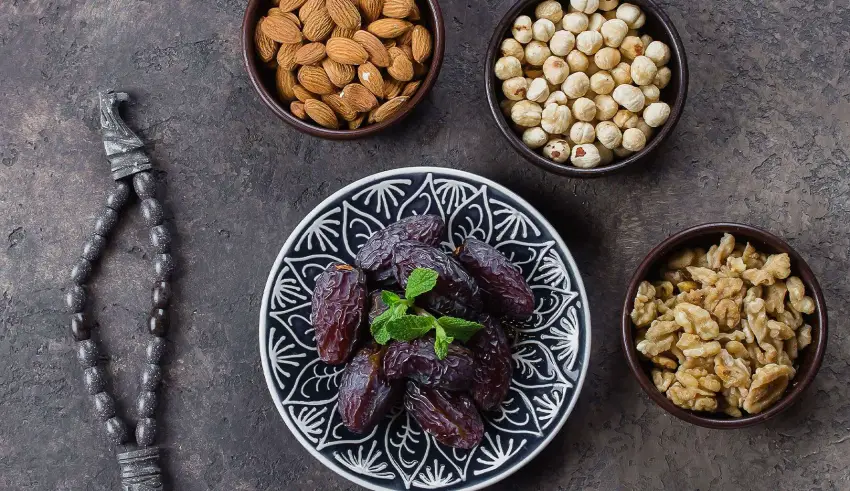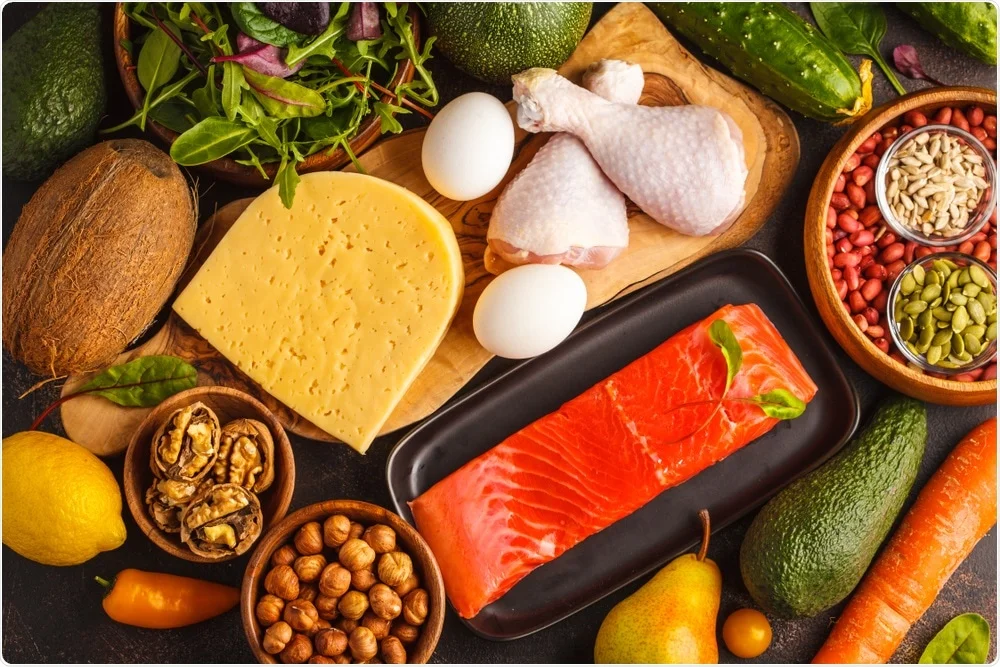Ramadan, the holy month of fasting observed by Muslims around the world, is a time for spiritual reflection, prayer, and increased devotion. During this month, Muslims abstain from food, drink, smoking, and other physical needs from dawn until sunset. While fasting is a central aspect of Ramadan, the way individuals nourish their bodies before and after the fast is just as important. A balanced and nutritious diet can help sustain energy levels, improve health, and support the spiritual journey. In this article, we will explore what to eat and what to avoid during Ramadan, offering practical advice on maintaining a healthy and balanced diet throughout the month.
The Basics of Ramadan Fasting
Before diving into dietary recommendations, it’s essential to understand the structure of fasting during Ramadan:
- Sawm (Fasting): Muslims fast from dawn (Fajr) to sunset (Maghrib), refraining from eating, drinking, smoking, and engaging in any physical needs during daylight hours.
- Suhoor: The pre-dawn meal taken before the fast begins. Suhoor is an important meal that provides energy for the day ahead.
- Iftar: The meal eaten at sunset to break the fast. Iftar typically starts with dates and water, followed by a larger meal.
- Taraweeh: Special nightly prayers held during Ramadan, which can often influence when people eat or drink at night.
Given the long hours of fasting, a proper diet plays a crucial role in keeping your body nourished and hydrated.
What to Eat During Ramadan
1. Suhoor: The Pre-Dawn Meal
Suhoor is essential because it provides the body with energy for the entire day of fasting. A well-balanced suhoor can help maintain hydration and prevent fatigue during the day. Here are some foods that are ideal for suhoor:
- Complex Carbohydrates: Foods rich in complex carbohydrates, like whole grains, oats, and brown rice, provide long-lasting energy and keep you fuller for longer. These foods take longer to digest and help prevent mid-day hunger.
- Examples: Whole wheat bread, oats, brown rice, quinoa, and whole grain cereals.
- Lean Proteins: Protein helps with muscle repair and keeps you feeling full throughout the day. Including protein in your suhoor helps stabilize blood sugar levels and reduces hunger.
- Examples: Eggs, Greek yogurt, cottage cheese, chicken, turkey, tofu, and legumes.
- Healthy Fats: Healthy fats contribute to satiety and provide sustained energy. Incorporating healthy fats in suhoor can help prevent energy crashes later in the day.
- Examples: Avocados, nuts (almonds, walnuts), seeds (chia, flax), and olive oil.
- Hydrating Foods: Hydration is key during fasting. Including foods with high water content can help keep you hydrated throughout the day.
- Examples: Cucumbers, tomatoes, watermelon, oranges, and yogurt.
- Fiber: Fiber slows digestion, providing long-lasting fullness and stabilizing blood sugar levels. It also supports digestive health, which can be particularly important during fasting.
- Examples: Whole fruits (apples, pears), vegetables (leafy greens, carrots), beans, lentils, and chia seeds.
2. Iftar: The Breaking of the Fast
Iftar is an important time to nourish the body after a day of fasting. However, it is essential to approach Iftar thoughtfully, as overeating can lead to indigestion and sluggishness. Here are some tips on what to eat when breaking your fast:
- Dates and Water: According to tradition, the Prophet Muhammad (PBUH) recommended breaking the fast with dates and water. Dates are a great source of natural sugars that quickly replenish energy levels. Water helps rehydrate the body after hours of fasting.
- Examples: Dates (fresh or dried), water, or a light soup.
- Soups and Broths: Soups are easy to digest and provide a warm, comforting way to break your fast. They are also hydrating and can be nutrient-dense when made with vegetables, lean proteins, and whole grains.
- Examples: Lentil soup, vegetable soup, chicken broth, or a light tomato-based soup.
- Lean Proteins: After a long day of fasting, protein helps to restore energy levels and support muscle health. Lean proteins are a healthy choice when breaking the fast.
- Examples: Grilled chicken, fish, lean beef, or plant-based proteins like tofu or tempeh.
- Whole Grains: Like suhoor, whole grains are a great option for Iftar because they provide fiber and energy. Whole grains also stabilize blood sugar levels.
- Examples: Brown rice, bulgur, quinoa, or whole wheat pasta.
- Fruits and Vegetables: Fruits and vegetables are a vital part of a balanced Iftar meal. They provide important vitamins, minerals, antioxidants, and fiber to support overall health.
- Examples: Fresh fruit salads, roasted vegetables, or side dishes of steamed greens, cucumbers, or carrots.
- Healthy Fats: Healthy fats are important to keep the body nourished and provide energy. They also help absorb fat-soluble vitamins.
- Examples: Olive oil, nuts, seeds, and avocado.
3. Hydration
Staying hydrated is perhaps the most important consideration during Ramadan. Dehydration can lead to fatigue, headaches, and digestive issues. Here’s how to maintain proper hydration:
- Drink Plenty of Water: Aim to drink at least 8–10 cups of water between Iftar and Suhoor to stay hydrated.
- Avoid Caffeinated Beverages: Caffeine is a diuretic, meaning it can cause the body to lose more water, leading to dehydration. It’s best to limit or avoid coffee and tea, especially at Suhoor.
- Include Hydrating Foods: As mentioned earlier, fruits and vegetables with high water content can contribute to hydration.
- Herbal Teas: Herbal teas like chamomile or peppermint can help with digestion and hydration without the caffeine.
What to Avoid During Ramadan
While it’s important to focus on what to eat during Ramadan, it’s just as critical to avoid certain foods and beverages that can negatively affect your health and energy levels.
1. Sugary Foods and Sweets
While it may be tempting to indulge in sugary treats after fasting, consuming too many sweets can lead to a spike in blood sugar followed by a rapid drop, which can leave you feeling sluggish and tired.
- Why Avoid: Sugary foods can lead to energy crashes and interfere with your ability to focus and stay alert. They can also contribute to weight gain and increase the risk of health issues like diabetes.
- Examples to Avoid: Sodas, sugary pastries, cakes, candies, and other heavily processed sweets.
2. Fried Foods
Fried foods are common in many Iftar meals, but they are not the healthiest option. While they may be delicious, they are high in unhealthy fats and can be difficult to digest after a long day of fasting.
- Why Avoid: Fried foods are high in calories and unhealthy fats, which can contribute to weight gain and increase the risk of heart disease. They can also cause digestive discomfort, bloating, and sluggishness.
- Examples to Avoid: Fried samosas, fried chicken, fried snacks, and chips.
3. Salty Foods
Salty foods can lead to dehydration, as they increase the body’s need for water. After a day of fasting, consuming high amounts of salt can make it difficult to stay hydrated.
- Why Avoid: Excessive salt can cause the body to retain water, leading to bloating and increased thirst. It can also increase blood pressure and stress your kidneys.
- Examples to Avoid: Processed meats (salami, bacon), salted nuts, pickles, and fast food.
4. Caffeinated Beverages
Caffeine, found in coffee, tea, and sodas, can dehydrate the body by increasing urine production. While it may seem refreshing, it can cause fatigue and discomfort, especially during fasting hours.
- Why Avoid: Caffeine can lead to dehydration, which is particularly problematic during long hours of fasting. It can also disrupt sleep patterns, making it harder to stay rested during Ramadan.
- Examples to Avoid: Coffee, caffeinated tea, energy drinks, and soda.
5. Highly Processed and Refined Foods
Highly processed foods, such as instant noodles, chips, and packaged snacks, are often low in essential nutrients and high in unhealthy fats, sugar, and sodium. These foods can leave you feeling sluggish and do not provide the sustained energy needed for fasting.
- Why Avoid: Processed foods are often nutritionally empty, contributing to weight gain and poor health over time. They can also cause blood sugar spikes and crashes, making it harder to maintain steady energy levels throughout the day.
- Examples to Avoid: Instant noodles, packaged snacks, sugary cereals, and fast food.
Conclusion
Ramadan is not only a time for spiritual growth but also an opportunity to focus on health and well-being. By making mindful choices about what to eat and drink during Suhoor and Iftar, you can ensure that your body remains nourished, hydrated, and energized throughout the month of fasting. Opt for nutrient-dense, whole foods, and avoid foods that can lead to dehydration, energy crashes, or weight gain.
With the right balance, Ramadan can be a time of physical, mental, and spiritual renewal, making it a meaningful experience for Muslims around the world.


